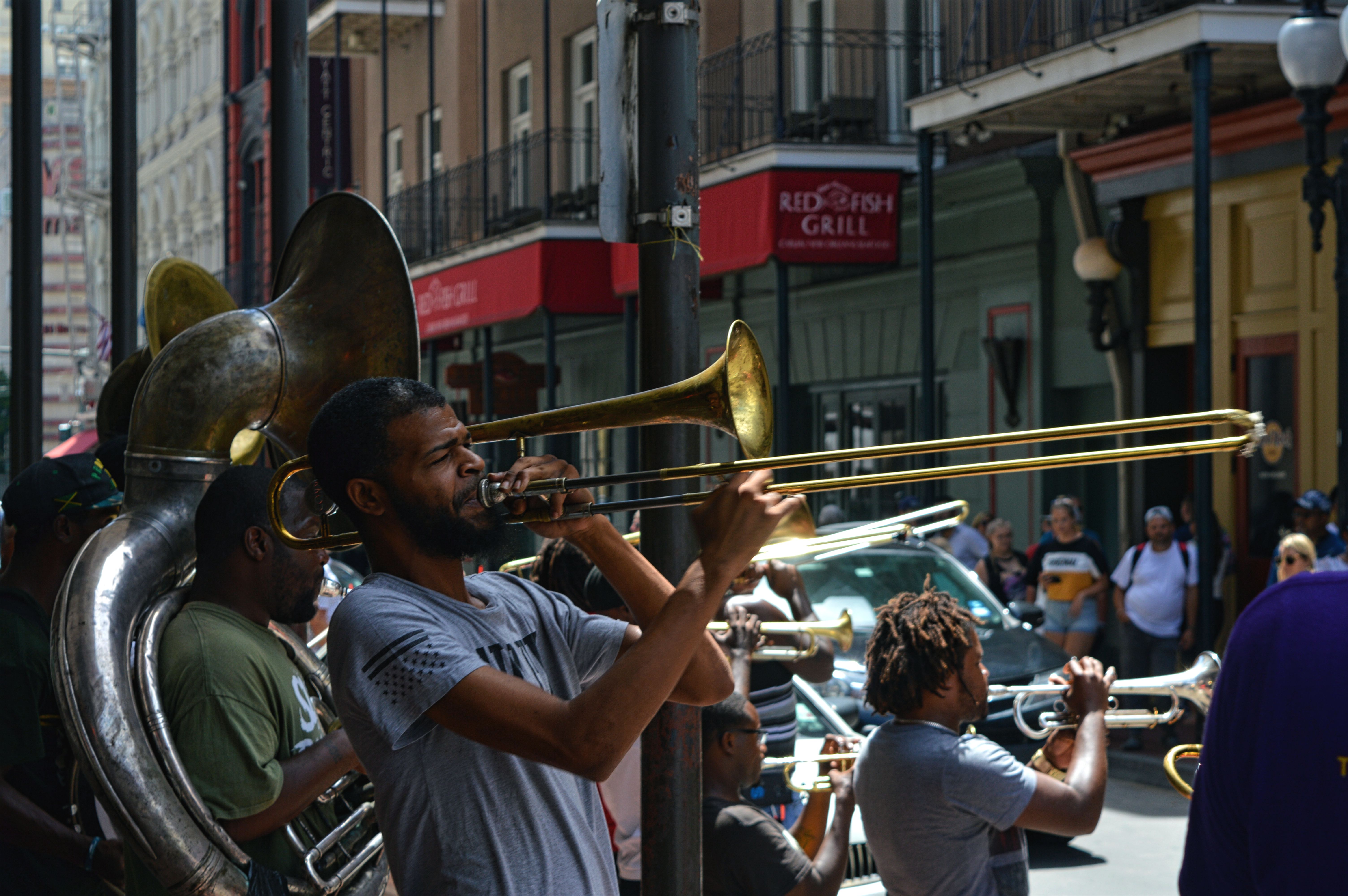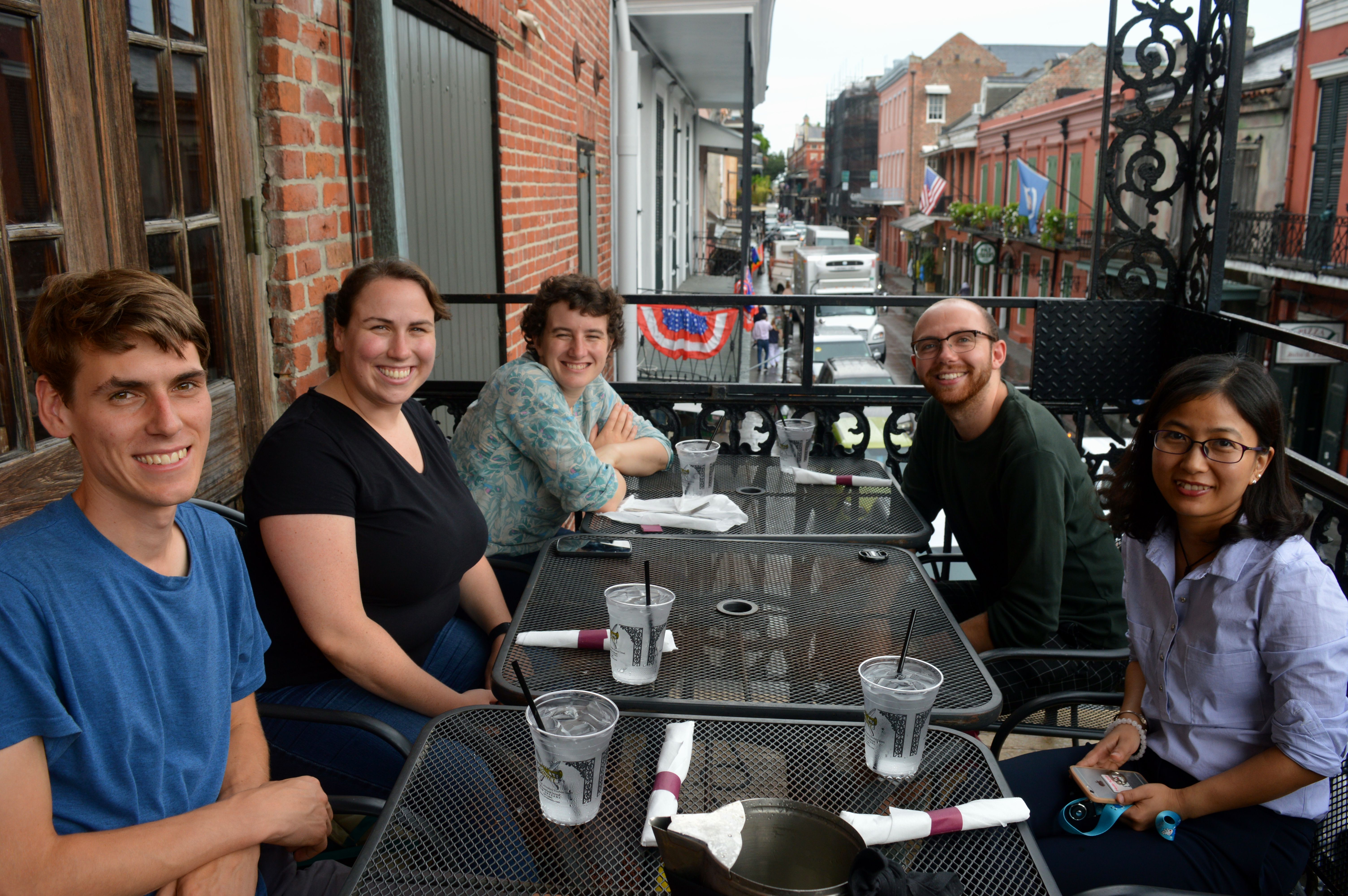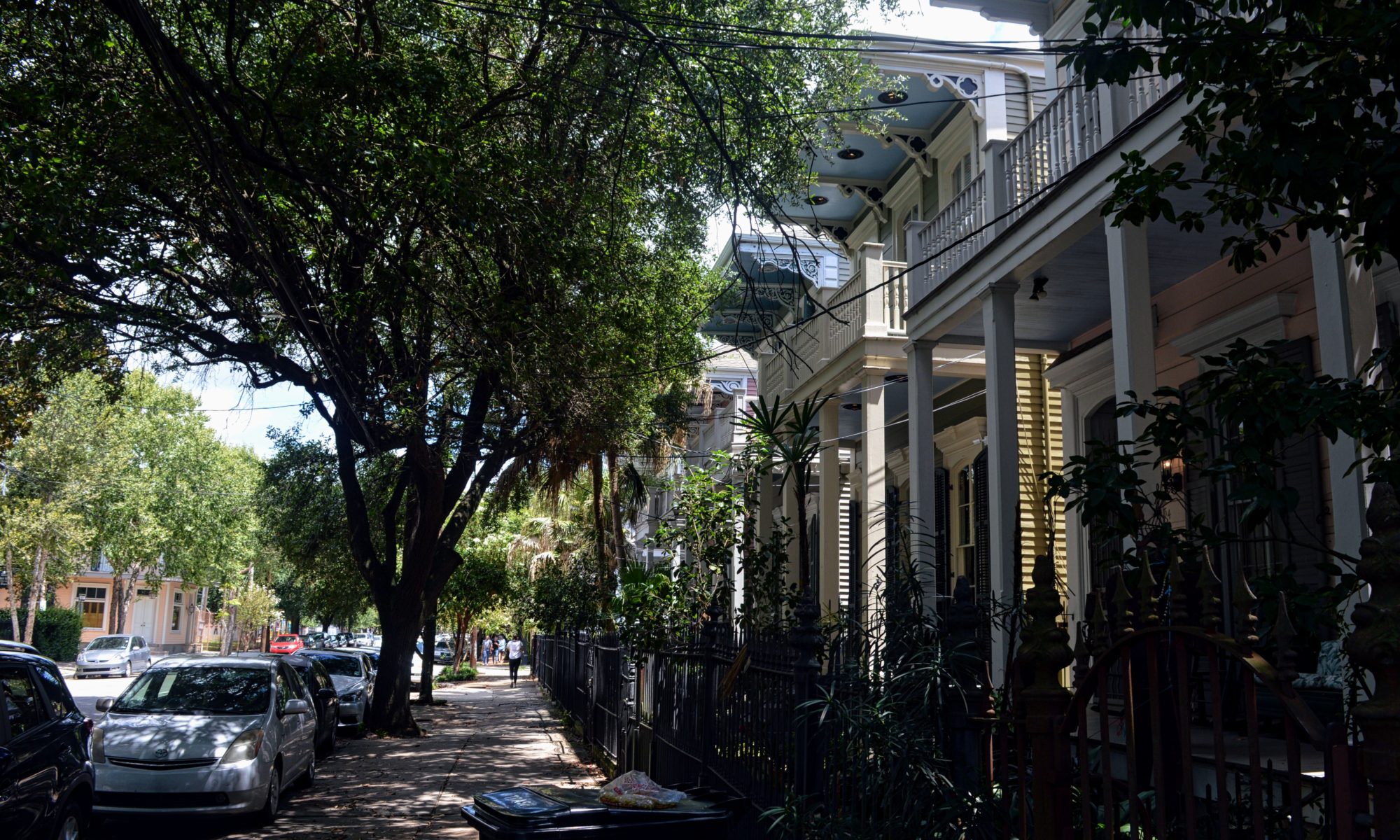- Separating signal from noise in acoustic biodiversity surveys - 17/11/2020
- Sustainable redevelopment: visions of a post-lockdown world - 29/05/2020
- Pedagogy in Portugal - 07/02/2020
It’s a hot day in early August in New Orleans, Louisiana. The beads of sweat rolling from everyone’s foreheads are a permanent fixture in this humidity. A group of drummers are joined by some brass players and an impromptu jazz performance begins. This is my first time in the U.S.A. and I really don’t know how I feel; primarily because of the jetlag. I’ve flown to the other side of the world for the largest gathering of ecologists on earth. This is the Ecological Society of America’s 103rd annual meeting (ESA 2018), where researchers from all over the world gather to share their science. Thousands of people walked the halls of the convention centre and I wondered if I’d ever see anyone I knew.
I came to ESA 2018 with five goals:
- Share preliminary results of my research.
- Meet some potential collaborators.
- Soak up some awesome science.
- Practice talking to a ‘big name’.
- Have fun!
Here’s how it went down…

My first goal was simple, insofar as I was scheduled to give a talk on Wednesday afternoon; right in the middle of the conference. All I had to do was not mess it up. This was my first time presenting results (even if preliminary) at a big international conference like this. I was nervous. But, I got on stage and told the surprisingly full room about how we’re using ecoacoustics to measure ecological stability and how we can use Okinawa’s rural-urban gradient to observe the effects of human activity on vocalising animal communities. I was surprised at how well the talk went; even despite a minor technical hitch. Even more surprising were the group of people who came up to me after my talk to ask more questions or to tell me about their bioacoustics projects. By chatting with these people both immediately after my talk and at other points, I also achieved my second goal. I’m excited to see where their research takes them, and I’m keen to work with them in the future.
After my talk, I thought the conference would be less exciting. I’d done my part, probably there weren’t many more people to meet or chat with. But Thursday was maybe my favourite day of the conference. There were so many awesome talks that day, and I waded out of my comfort zone to interact with several of the speakers whose talks I enjoyed. I also got to speak to a big name in the form of Brian McGill, whose work I’ve been reading and citing since my undergraduate degree. I probably wouldn’t have bucked up the courage to talk to him myself, so it was fortuitous that I was at a mixer with someone who knows him. It was nerve-wracking and I didn’t really know how to talk about my work; compared to his illustrious career I felt like my science pales in comparison. Eventually, I unfroze and I got some good practice at talking to scientists I admire.
I couldn’t have done all of this on my own. I was joined in New Orleans by Maureen Williams (PhD student also in Ian Donohue’s lab), Darren O’Connell (PhD student in Nicola Marples’ lab, and long-lost cousin of an excellent twitter promoter) and Ruth Kelly (Postdoctoral fellow in Yvonne Buckley’s lab). This was my first time seeing them since December of last year, and it was great to catch up. I think we can all agree that we ticked off the last goal on my list; I certainly had a lot of fun! New Orleans is a vibrant – if occasionally smelly – city with plenty in the way of evening activities. I do possibly regret the local ‘hand grenade’ ice cocktail on the first night. We all found it a bit too hangover-inducing after our long flights.

The take home is that although this was the largest meeting I’ve ever been to (and the largest meeting in our field), I felt like I achieved everything I set out to do, and as I’m writing this on the 13.5-hour flight back to Japan, I’m feeling freshly inspired. I want to finish old projects with fresh eyes, test new hypotheses, keep in touch with new contacts and I feel comfortable with the way my PhD is shaping up in these early stages. Importantly ESA 2018 has reminded me that when it comes to my PhD, it’s a marathon, not a sprint.
______________
About the Author
Sam Ross is a PhD student in Ian Donohue’s research group in the Department of Zoology, Trinity College Dublin. His research focuses on the effects of global change on ecological stability. Find out more about his research here:
Website | https://srpjr.wordpress.com/
Twitter | @SamRPJRoss
Research Gate | Profile
Google Scholar | Profile
Linkedin | Profile
ORCID | 0000-0001-9402-9119

